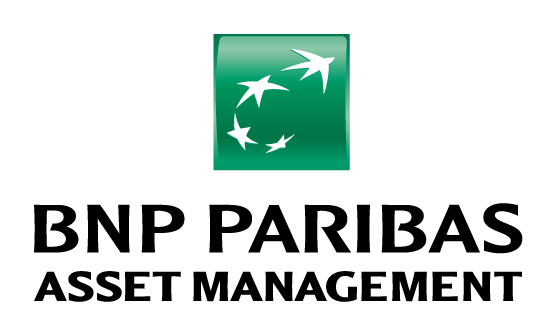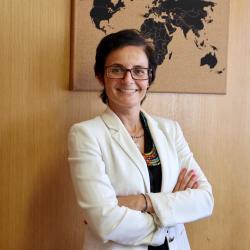2024 agenda
2024 agenda
Agenda 2024
Reserve Management - 12th June
08:15 – 09:30
Registration & breakfast
08:15 - 09:30
09:30 – 09:45
Welcome to the Summer Meetings
09:30 - 09:45
Christopher Jeffery is Editor of Central Banking Publications, which includes the Central Banking Journal, CentralBanking.com and Central Banking On Air. He has more than 15 years of experience covering banking, business, economics, finance and public policy in London, Hong Kong and New York. His interviews include those with Agustín Carstens, Stanley Fisher, Stefan Ingves, Ahmed Alkholifey, Raghuram Rajan, Robert Schiller and Christopher Sims. Chris is Chairman of the Central Banking Awards Committee and is Editor of IFF China Report, a publication offering insight and opinion from China’s top policymakers. Chris was previously Editor of Asia Risk in Hong Kong and Deputy Editor of Risk in London
09:45 – 10:30
Opening plenary keynote address
09:45 - 10:30
Nicolas Vincent was appointed external, non-executive Deputy Governor of the Bank of Canada for a two-year term, effective March 2023. In this role, Mr. Vincent will be a member of the Bank’s Governing Council, which is the Bank’s policy-making body responsible for decisions with respect to monetary policy and financial system stability.
Mr. Vincent is a professor of economics in the Department of Applied Economics at HEC Montréal and co-chair of the Business Cycles and Financial Markets research theme at CIRANO (Centre interuniversitaire de recherche en analyse des organisations). Mr. Vincent began his career as an economist at the Department of Finance Canada in 2000. From 2007 to 2012, he was an assistant professor at HEC Montréal, then an associate professor from 2013 to 2021. He was appointed as a full professor in 2021. He has been a visiting and adjunct faculty member and researcher at numerous institutions, including Columbia Business School, INSEAD, the Banque de France and the Kellogg School of Management.
Mr. Vincent was the 2021 recipient of Marcel Dagenais Award for Outstanding Contribution to Economic Research in Quebec and Canada as well as the recipient of a 2022–26 Social Sciences and Humanities Research Council Insight Grant. He was the winner of the Young Researcher of the Year Award at HEC Montréal in 2012 and has won multiple Teacher of the Year awards from HEC Montréal and INSEAD over the course of his career.
Born in Trois-Rivières, Quebec, Mr. Vincent holds a Bachelor of Commerce degree in applied economics from HEC Montréal, a master’s degree in economics from Queen’s University and a PhD in economics from Northwestern University.
10:30 – 10:45
Chairs opening remarks
10:30 - 10:45
Ms. Johnson-Calari created and led the World Bank's Reserves Advisory and Management Program (RAMP), which is one of the world's leading providers of consulting and capacity building services to public sector asset managers. In this capacity, she worked globally with central banks, national pension funds and sovereign wealth funds in strengthening governance and building investment management capacity. She contributed to setting global standards of best practice for the management of sovereign assets and liabilities working with the IMF on the Reserves Management Guidelines and the ISWF's "Santiago Principles". Ms. Johnson-Calari has contributed to several books on the topic of portfolio and risk management and was a contributing author and editor of Sovereign Wealth Management, London: Central Banking Publications, 2008. She is a well-known expert on issues relating to central bank reserves management and portfolio management and has spoken widely at international conferences in both official and private sector fora.
She began her career with the Board of Governors of the Federal Reserve System in banking supervision with a focus on commercial bank asset/liability and risk management issues. She has earned advanced degrees from the Harvard Business School (GMP, 2004) the Johns Hopkins School of Advanced International Studies (SAIS) (MA, 1981) and is a Chartered Financial Analyst (CFA). She currently serves as a consultant to several international financial institutions.
10:45 – 11:45
Presentation from Central Banking 2024 award winner
10:45 - 11:45
Martin Wagner Toftdahl is Head of Banking and Markets and part of the Group Management at Danmarks Nationalbank, with overall the responsibility for monetary policy implementation, central bank payment systems and the Danish debt management office. This also includes reserve management. Martin has been employed with Danmarks Nationalbank since 2021. Previously, Martin has had various roles in Group Treasury at Nordea Group and latest as Head of Funding and Liquidity. Prior to that Martin has worked as economist at the European Central Bank.
11:45 – 12:15
Networking break
11:45 - 12:15
12:15 – 13:15
Central bank monetary policy & reserve management in an era of uncertainty and change
12:15 - 13:15
Sponsored by:

- Impact of geopolitics and domestic policies on economics, including the uncertainty surrounding the 2024 elections and increased great power rivalry in economics and finance
- Debate between structurally higher inflation or renewed lowflation due to technology, productivity, and demographics, and its implications for monetary policy rates, bond yields, and term premia
- Potential for a multipolar currency system, considerations regarding Russia's FX reserves, and the shift towards national currencies in payments and its effects on central bank balance sheets
- Discussion on the size and composition of central bank balance sheets, and considerations for reserve holding central banks: whether to enlarge, reduce, or diversify international reserves
13:15 – 14:30
Lunch break, and networking
13:15 - 14:30
14:30 – 15:15
Keynote address
14:30 - 15:15
Elizabeth McCaul is a Member of the Supervisory Board of the European Central Bank. Her areas of responsibility include the Supervisory Review and Evaluation Process (SREP), internal governance and risk management, the digital agenda, the training program of the SSM as well as diversity and inclusion. She focuses on prudential implications in dynamic areas such as the oversight of FinTech and supervision of crypto-assets, cyber and IT risk and the digital transformation of the banking sector. She joined the NY State Banking Department as First Deputy in 1995 and served as NY Superintendent of Banks from 1997-2003. She was elected Chair of the Conference of State Bank Supervisors, served as a Member of the Federal Financial Institutions Examinations Council, on the Joint Forum for Financial Conglomerates and as an Instructor for Financial Stability Institute at the BIS.
Before joining the ECB, she worked for Promontory Financial Group where she founded the New York office and served as the Partner-in-Charge, as CEO and Chair of Europe, and Global Head of Strategy.
For the first decade of her career, she was an investment banker at Goldman Sachs.
15:15 – 15:45
Networking break
15:15 - 15:45
15:45 – 16:45
Working group
A chance for engagement and discussion on a topic
15:45 - 16:45
16:45 – 17:00
Chair's closing remarks
16:45 - 17:00
Ms. Johnson-Calari created and led the World Bank's Reserves Advisory and Management Program (RAMP), which is one of the world's leading providers of consulting and capacity building services to public sector asset managers. In this capacity, she worked globally with central banks, national pension funds and sovereign wealth funds in strengthening governance and building investment management capacity. She contributed to setting global standards of best practice for the management of sovereign assets and liabilities working with the IMF on the Reserves Management Guidelines and the ISWF's "Santiago Principles". Ms. Johnson-Calari has contributed to several books on the topic of portfolio and risk management and was a contributing author and editor of Sovereign Wealth Management, London: Central Banking Publications, 2008. She is a well-known expert on issues relating to central bank reserves management and portfolio management and has spoken widely at international conferences in both official and private sector fora.
She began her career with the Board of Governors of the Federal Reserve System in banking supervision with a focus on commercial bank asset/liability and risk management issues. She has earned advanced degrees from the Harvard Business School (GMP, 2004) the Johns Hopkins School of Advanced International Studies (SAIS) (MA, 1981) and is a Chartered Financial Analyst (CFA). She currently serves as a consultant to several international financial institutions.
17:00 – 18:30
Cocktail reception
17:00 - 18:30
18:30 – 21:30
Central Banking Awards 2024
18:30 - 21:30
Reserve Management - 13th June
08:15 – 09:30
Registration & breakfast
08:15 - 09:30
09:30 – 09:45
Welcome to day two of the Summer Meetings
09:30 - 09:45
Christopher Jeffery is Editor of Central Banking Publications, which includes the Central Banking Journal, CentralBanking.com and Central Banking On Air. He has more than 15 years of experience covering banking, business, economics, finance and public policy in London, Hong Kong and New York. His interviews include those with Agustín Carstens, Stanley Fisher, Stefan Ingves, Ahmed Alkholifey, Raghuram Rajan, Robert Schiller and Christopher Sims. Chris is Chairman of the Central Banking Awards Committee and is Editor of IFF China Report, a publication offering insight and opinion from China’s top policymakers. Chris was previously Editor of Asia Risk in Hong Kong and Deputy Editor of Risk in London
09:45 – 10:30
Plenary keynote address
09:45 - 10:30
Aleš Michl was born in Prague on 18 October 1977. He obtained a Ph.D. in finance at the University of Economics in Prague in 2020. He graduated from the University of Economics with an MSc (Ing.) degree in 2002. He completed a training programme on game theory and the psychology of decision-making at the Summer School at the London School of Economics and Political Science in 2005 and took an investment portfolio management course at the Wharton School in Philadelphia in 2009. He started his professional career as an economic journalist during his studies and later as an economic adviser to Deputy Prime Minister for the Economy Martin Jahn. He worked as an economic and investment strategist at Raiffeisenbank in 2006–2015. In 2014–2018, he was an external economic adviser to the Czech Ministry of Finance and later the Czech Prime Minister Andrej Babiš, specialising in macroeconomic analysis and government debt stabilisation. He founded Michl Fund Management s.r.o. in 2016, which subsequently co-founded Robot Asset Management SICAV a.s., which carries on the activities of an investment fund for qualified investors with the Quant sub-fund. He terminated these activities on the date of commencement of his position in the CNB Board. Mr Michl is the author of numerous columns and articles in newspapers, journals and magazines. He also wrote the books MICHLiq - průvodce eckonomií a investicemi (MICHLiq – a guide to economics and investment), Jestřábi a holubice (Hawks and Doves) and Reset ekonomiky (How to Reset the Economy). He is not and has never been a member of a political party. Aleš Michl was appointed a member of the CNB Bank Board on 1 December 2018. The President appointed him CNB Governor for a term of six years with effect from 1 July 2022.
10:30 – 10:45
Chairs opening remarks
10:30 - 10:45
Ms. Johnson-Calari created and led the World Bank's Reserves Advisory and Management Program (RAMP), which is one of the world's leading providers of consulting and capacity building services to public sector asset managers. In this capacity, she worked globally with central banks, national pension funds and sovereign wealth funds in strengthening governance and building investment management capacity. She contributed to setting global standards of best practice for the management of sovereign assets and liabilities working with the IMF on the Reserves Management Guidelines and the ISWF's "Santiago Principles". Ms. Johnson-Calari has contributed to several books on the topic of portfolio and risk management and was a contributing author and editor of Sovereign Wealth Management, London: Central Banking Publications, 2008. She is a well-known expert on issues relating to central bank reserves management and portfolio management and has spoken widely at international conferences in both official and private sector fora.
She began her career with the Board of Governors of the Federal Reserve System in banking supervision with a focus on commercial bank asset/liability and risk management issues. She has earned advanced degrees from the Harvard Business School (GMP, 2004) the Johns Hopkins School of Advanced International Studies (SAIS) (MA, 1981) and is a Chartered Financial Analyst (CFA). She currently serves as a consultant to several international financial institutions.
10:45 – 11:45
Reserve management trends: addressing geopolitical risks, bond market turbulence, diversification challenges and AI innovations
14:30 - 15:30
Sponsored by:

- Gain exclusive insights from HSBC's landmark survey of 91 central banks
- What are the most significant risks reserve managers face in 2024?
- How are reserve managers incorporating geopolitical risk into their portfolios?
- With heightened uncertainty around the path of interest rates, what strategies are being adopted?
- What are the latest trends in attitudes to sustainability, de-dollarisation and currency diversification?
- How is the use of AI to optimise operations viewed and where can this technology best be utilised?
11:45 – 12:15
Networking break
11:45 - 12:15
12:15 – 13:15
Reserve renaissance: shaping the future of de-dollarisation and next-generation allocation strategies
12:15 - 13:15
Sponsored by:

- Analyse global shifts in reserve management away from traditional currencies
- Discuss implications for economic stability and geopolitical landscapes
- Explore dynamic strategies amidst changing global dynamics
- Balance risk and return in diversified reserve portfolios
- Assess the role of non-traditional reserves such as gold, ESG investments, and blockchain-based assets
- Evaluate potential enhancements in portfolio diversification and risk management
- Examine criteria and methodologies guiding reserve managers' investment decisions incorporating sustainability metrics, technological advancements, and macroeconomic trends
Ebru has specialized in fixed income markets for the region since 2008, responsible for localizing Bloomberg’s products, multi-class asset product development and business strategy including Islamic Finance. Prior to this, she managed Bloomberg Sales for Russia, CIS (the new name for former Soviet republics), Eastern Europe, the Balkans and Turkey. Ebru started her career in Solomon Brothers New York, as a Debt Capital Markets analyst focusing on sovereign debt issuance and asset liability advisory.
Ebru has authored a number of articles – topics include the introduction of VAT in the GCC and the Pakistan economy. She has an MSc in finance from Lancaster University in the United Kingdom.
Ebru also works closely with exchanges, Central Banks and Ministry of Finances on formation of liquidity platforms in local markets in the fixed income space.
13:15 – 14:30
Lunch break, and networking
13:15 - 14:30
14:30 – 15:30
Dynamic market landscapes: the interplay of strategic and tactical asset allocation
14:30 - 15:30
- Identifying the pivotal role and application of strategic asset allocation in preserving portfolio resilience over the long term
- Strategies for portfolio managers to proactively prepare for and leverage tactical asset allocation opportunities
- Balancing strategic vision with tactical agility to optimise investment outcomes
- Leveraging tactical asset allocation to navigate macro volatility and capitalise on emerging opportunities
15:30 – 16:00
Chairs closing remarks
15:30 - 16:00
Ms. Johnson-Calari created and led the World Bank's Reserves Advisory and Management Program (RAMP), which is one of the world's leading providers of consulting and capacity building services to public sector asset managers. In this capacity, she worked globally with central banks, national pension funds and sovereign wealth funds in strengthening governance and building investment management capacity. She contributed to setting global standards of best practice for the management of sovereign assets and liabilities working with the IMF on the Reserves Management Guidelines and the ISWF's "Santiago Principles". Ms. Johnson-Calari has contributed to several books on the topic of portfolio and risk management and was a contributing author and editor of Sovereign Wealth Management, London: Central Banking Publications, 2008. She is a well-known expert on issues relating to central bank reserves management and portfolio management and has spoken widely at international conferences in both official and private sector fora.
She began her career with the Board of Governors of the Federal Reserve System in banking supervision with a focus on commercial bank asset/liability and risk management issues. She has earned advanced degrees from the Harvard Business School (GMP, 2004) the Johns Hopkins School of Advanced International Studies (SAIS) (MA, 1981) and is a Chartered Financial Analyst (CFA). She currently serves as a consultant to several international financial institutions.
Innovation - 12th June
08:15 – 09:30
Registration & breakfast
08:15 - 09:30
09:30 – 09:45
Welcome to the Summer Meetings
09:30 - 09:45
Christopher Jeffery is Editor of Central Banking Publications, which includes the Central Banking Journal, CentralBanking.com and Central Banking On Air. He has more than 15 years of experience covering banking, business, economics, finance and public policy in London, Hong Kong and New York. His interviews include those with Agustín Carstens, Stanley Fisher, Stefan Ingves, Ahmed Alkholifey, Raghuram Rajan, Robert Schiller and Christopher Sims. Chris is Chairman of the Central Banking Awards Committee and is Editor of IFF China Report, a publication offering insight and opinion from China’s top policymakers. Chris was previously Editor of Asia Risk in Hong Kong and Deputy Editor of Risk in London
09:45 – 10:30
Opening plenary keynote address
09:45 - 10:30
Nicolas Vincent was appointed external, non-executive Deputy Governor of the Bank of Canada for a two-year term, effective March 2023. In this role, Mr. Vincent will be a member of the Bank’s Governing Council, which is the Bank’s policy-making body responsible for decisions with respect to monetary policy and financial system stability.
Mr. Vincent is a professor of economics in the Department of Applied Economics at HEC Montréal and co-chair of the Business Cycles and Financial Markets research theme at CIRANO (Centre interuniversitaire de recherche en analyse des organisations). Mr. Vincent began his career as an economist at the Department of Finance Canada in 2000. From 2007 to 2012, he was an assistant professor at HEC Montréal, then an associate professor from 2013 to 2021. He was appointed as a full professor in 2021. He has been a visiting and adjunct faculty member and researcher at numerous institutions, including Columbia Business School, INSEAD, the Banque de France and the Kellogg School of Management.
Mr. Vincent was the 2021 recipient of Marcel Dagenais Award for Outstanding Contribution to Economic Research in Quebec and Canada as well as the recipient of a 2022–26 Social Sciences and Humanities Research Council Insight Grant. He was the winner of the Young Researcher of the Year Award at HEC Montréal in 2012 and has won multiple Teacher of the Year awards from HEC Montréal and INSEAD over the course of his career.
Born in Trois-Rivières, Quebec, Mr. Vincent holds a Bachelor of Commerce degree in applied economics from HEC Montréal, a master’s degree in economics from Queen’s University and a PhD in economics from Northwestern University.
10:30 – 10:45
Chairs opening remarks
10:30 - 10:45
Clair Mills
Director of strategic change and operations for markets, banking and payments
Bank of England
Clair Mills is the Director of Strategic Change and Operations for the Markets, Banking and Payments Deputy Governorship, at the Bank of England, and is responsible for middle and back office operations, which includes delivery of the Markets, Banking and Payments Operations and Data Strategy, Budget, Operational Resilience and Risk and the Investment and Change Portfolio. Clair has over 20 years’ extensive financial services experience operating at board level and leading successful strategic and transformational change in a number of complex organisations, having started her career in the Building Society and Retail Banking sector, before moving into Operational and Technological Change Management and Consultancy. Clair joined the Financial Services Authority in 2011 to lead the Internal Twin Peaks programme transition to the PRA and FCA regulatory model, moving across to the Bank of England with the PRA becoming the Chief Operating Officer in the PRA in 2018. In her current role, as well as providing the leadership, management and vision necessary to support the business and to ensure that the proper operational controls, administrative and reporting procedures, and people systems are in place, Clair is also responsible for leading the area’s extensive project portfolio, helping translate business and policy vision into deliverable change programmes, this includes giving key note speeches both in the UK and internationally on topics such as Financial and Regulatory Technology (FinTech/RegTech) and how Central Banks and regulators can take advantage of the advances in technology in the work we do.
10:45 – 11:45
Presentation from Central Banking 2024 award winner
10:45 - 11:45
11:45 – 12:15
Networking break
11:45 - 12:15
12:15 – 13:15
Fortifying cyber resilience in central banking operations
12:15 - 13:15
- Exploring the latest developments in cyber threats targeting the financial sector, including considerations of regulatory changes such as DORA
- Assessing weaknesses in IT asset management, deficiencies in asset protection, and their implications for cyber resilience in central banking
- Strategies for implementing secure systems, enhancing network segmentation, and implementing effective access control measures for safeguarding
- Enhancing incident detection, response, and recovery readiness, while championing cybersecurity compliance, including DORA readiness.
13:15 – 14:30
Lunch break, and networking
13:15 - 14:30
14:30 – 15:15
Keynote address
14:30 - 15:15
Elizabeth McCaul is a Member of the Supervisory Board of the European Central Bank. Her areas of responsibility include the Supervisory Review and Evaluation Process (SREP), internal governance and risk management, the digital agenda, the training program of the SSM as well as diversity and inclusion. She focuses on prudential implications in dynamic areas such as the oversight of FinTech and supervision of crypto-assets, cyber and IT risk and the digital transformation of the banking sector. She joined the NY State Banking Department as First Deputy in 1995 and served as NY Superintendent of Banks from 1997-2003. She was elected Chair of the Conference of State Bank Supervisors, served as a Member of the Federal Financial Institutions Examinations Council, on the Joint Forum for Financial Conglomerates and as an Instructor for Financial Stability Institute at the BIS.
Before joining the ECB, she worked for Promontory Financial Group where she founded the New York office and served as the Partner-in-Charge, as CEO and Chair of Europe, and Global Head of Strategy.
For the first decade of her career, she was an investment banker at Goldman Sachs.
15:15 – 15:45
Networking break
15:15 - 15:45
15:45 – 16:45
Working group
A chance for engagement and discussion on a topic
15:45 - 16:45
How can central banks change their organisational culture to embrace digitisation? How can they move from ideas to reality? What challenges are there, and how might we go about overcoming them?
This session will be moderated, but will primarily be an interactive session for the delegates.
Peter Faykiss is the Director of Digitalization Directorate at the Magyar Nemzeti Bank (the central bank of Hungary), where he is responsible for FinTech, digital finance and digital currencies/CBDC topics. Before entering the digital finance area, he gained experience in financial stability, financial regulation and macroprudential policy. As the Head of Division for Banking Regulations of Ministry for National Economy he was responsible for the domestic implementation of the European regulatory package CRD IV in 2013. In 2014 he was appointed as the Head of Macroprudential Policy Department of the MNB, from 2017 he served as the Director of Macroprudential Directorate. Mr. Faykiss graduated in 2009 from Corvinus University of Budapest and he holds a PhD in Finance from Corvinus University of Budapest.”
16:45 – 17:00
Chair's closing remarks
16:45 - 17:00
17:00 – 18:30
Cocktail reception
17:00 - 18:30
18:30 – 21:30
Central Banking Awards 2024
18:30 - 21:30
Innovation - 13th June
08:15 – 09:30
Registration & breakfast
08:15 - 09:30
09:30 – 09:45
Welcome to day two of the Summer Meetings
09:30 - 09:45
Christopher Jeffery is Editor of Central Banking Publications, which includes the Central Banking Journal, CentralBanking.com and Central Banking On Air. He has more than 15 years of experience covering banking, business, economics, finance and public policy in London, Hong Kong and New York. His interviews include those with Agustín Carstens, Stanley Fisher, Stefan Ingves, Ahmed Alkholifey, Raghuram Rajan, Robert Schiller and Christopher Sims. Chris is Chairman of the Central Banking Awards Committee and is Editor of IFF China Report, a publication offering insight and opinion from China’s top policymakers. Chris was previously Editor of Asia Risk in Hong Kong and Deputy Editor of Risk in London
09:45 – 10:30
Plenary keynote address
09:45 - 10:30
Aleš Michl was born in Prague on 18 October 1977. He obtained a Ph.D. in finance at the University of Economics in Prague in 2020. He graduated from the University of Economics with an MSc (Ing.) degree in 2002. He completed a training programme on game theory and the psychology of decision-making at the Summer School at the London School of Economics and Political Science in 2005 and took an investment portfolio management course at the Wharton School in Philadelphia in 2009. He started his professional career as an economic journalist during his studies and later as an economic adviser to Deputy Prime Minister for the Economy Martin Jahn. He worked as an economic and investment strategist at Raiffeisenbank in 2006–2015. In 2014–2018, he was an external economic adviser to the Czech Ministry of Finance and later the Czech Prime Minister Andrej Babiš, specialising in macroeconomic analysis and government debt stabilisation. He founded Michl Fund Management s.r.o. in 2016, which subsequently co-founded Robot Asset Management SICAV a.s., which carries on the activities of an investment fund for qualified investors with the Quant sub-fund. He terminated these activities on the date of commencement of his position in the CNB Board. Mr Michl is the author of numerous columns and articles in newspapers, journals and magazines. He also wrote the books MICHLiq - průvodce eckonomií a investicemi (MICHLiq – a guide to economics and investment), Jestřábi a holubice (Hawks and Doves) and Reset ekonomiky (How to Reset the Economy). He is not and has never been a member of a political party. Aleš Michl was appointed a member of the CNB Bank Board on 1 December 2018. The President appointed him CNB Governor for a term of six years with effect from 1 July 2022.
10:30 – 10:45
Chairs opening remarks
10:30 - 10:45
Clair Mills
Director of strategic change and operations for markets, banking and payments
Bank of England
Clair Mills is the Director of Strategic Change and Operations for the Markets, Banking and Payments Deputy Governorship, at the Bank of England, and is responsible for middle and back office operations, which includes delivery of the Markets, Banking and Payments Operations and Data Strategy, Budget, Operational Resilience and Risk and the Investment and Change Portfolio. Clair has over 20 years’ extensive financial services experience operating at board level and leading successful strategic and transformational change in a number of complex organisations, having started her career in the Building Society and Retail Banking sector, before moving into Operational and Technological Change Management and Consultancy. Clair joined the Financial Services Authority in 2011 to lead the Internal Twin Peaks programme transition to the PRA and FCA regulatory model, moving across to the Bank of England with the PRA becoming the Chief Operating Officer in the PRA in 2018. In her current role, as well as providing the leadership, management and vision necessary to support the business and to ensure that the proper operational controls, administrative and reporting procedures, and people systems are in place, Clair is also responsible for leading the area’s extensive project portfolio, helping translate business and policy vision into deliverable change programmes, this includes giving key note speeches both in the UK and internationally on topics such as Financial and Regulatory Technology (FinTech/RegTech) and how Central Banks and regulators can take advantage of the advances in technology in the work we do.
10:45 – 11:45
Streamlining communication and compliance: practical AI solutions for financial supervision
10:45 - 11:45
Sponsored by:

- Establishing a solid foundation by prioritising quality data and robust infrastructure for AI initiatives, incorporating strategies for data acquisition, cleaning, and management to facilitate successful integration
- Leveraging AI beyond theoretical ideals by exploring real-world applications and identifying practical use cases that enhance operational efficiency and decision-making processes
- Bridging the gap between supervisors and regulated entities through technology, optimising communication and regulatory compliance with AI tools for data collection, reporting, and workflow enhancement
- Demonstrating how AI optimises organizational communication, exploring a case study on leveraging AI to enhance communication efficiency while upholding regulatory compliance
Tomas is currently the team leader of the Financial Innovation Team at the Czech National Bank. The team is in charge of the digital finance agenda including crypto-assets and DLT, digital operational resilience, machine learning, open finance, financial innovation facilitation, SupTech, digital identity, or any other exciting technology that might have an impact on financial markets. He is a trained lawyer who has been in his programming journey into Python, JavaScript and C for a quite some time.
Jovelyn Hao
Deputy director, fintech innovation and policy research group, technology risk and innovation supervision department
Central Bank of the Philippines
With over a decade of experience in technology risk supervision, Ms. Jovelyn M. Hao (Jovie) brings in key insights and valuable inputs as she leads the Fintech Innovation and Policy Research Group (FIPRG) under the Technology Risk and Innovation Supervision Department (TRISD). FIPRG serves as the primary contact for fintech players in the Philippines, particularly those with underlying BSP-regulated activities. Ms. Hao is likewise heavily involved in various policy initiatives of the BSP such as the Amendments to the Regulations on Outsourcing, as well as ongoing initiatives on Open Finance, Regulatory Sandbox, and AI Governance. Prior to her current role, she was also a pioneer member of the Cybersecurity Supervision and Oversight Group (CSOG).
11:45 – 12:15
Networking break
15:15 - 15:45
12:15 – 13:15
Navigating the evolution of CBDCs: from idealisation to realisation
12:15 - 13:15
- Assessing central banks' progress from research to implementation, considering infrastructure readiness and governance prerequisites
- Discussing stable, effective governance, robust financial infrastructure, central bank credibility, and public support as crucial factors for CBDC implementation
- Analysing the potential effects of CBDCs on monetary policy frameworks, legal considerations, and the modernization of payment systems
- Exploring how electoral cycles may influence the adoption and development of CBDCs, taking into account political factors and public sentiment
Danny Russell is the Head of Digital Currency Technology at the Bank of England. Previously he was Principal Architect for the Digital Pound leading the technology workstream in the digital pound project, and in particular the Technology Working Paper published in February 2023, and Project Rosalind, released in June 2023 which was a joint initiative with the BIS Innovation Hub to explore API technology for CBDC payments. Before joining the Bank, he was Director of Product for Crypto, Digital Currencies and Blockchain globally at FIS. He has previously been a member of the W3C payment request working group and PCI working group for the CPOC (Contactless payments on COTS) standard
Peter Faykiss is the Director of Digitalization Directorate at the Magyar Nemzeti Bank (the central bank of Hungary), where he is responsible for FinTech, digital finance and digital currencies/CBDC topics. Before entering the digital finance area, he gained experience in financial stability, financial regulation and macroprudential policy. As the Head of Division for Banking Regulations of Ministry for National Economy he was responsible for the domestic implementation of the European regulatory package CRD IV in 2013. In 2014 he was appointed as the Head of Macroprudential Policy Department of the MNB, from 2017 he served as the Director of Macroprudential Directorate. Mr. Faykiss graduated in 2009 from Corvinus University of Budapest and he holds a PhD in Finance from Corvinus University of Budapest.”
13:15 – 14:30
Lunch break, and networking
13:15 - 14:30
14:30 – 15:30
Unlocking efficiency with ALYA: the Bank of Portugal's award-winning AI project
14:30 - 15:30
- Explore the capabilities of the Bank of Portugal’s AI platform in machine learning and deep learning
- Learn about ALYA's role in automating procedures across various business areas, such as monitoring credit agreements and analysing market sentiment
- Delve into the creation of ALYA, including the establishment of the data science academy and the formation of a dedicated AI team
- The importance of data and a secure foundation for successful AI implementation.
Filipa Lima is Deputy-Head of the Information Systems and Technology Department of Banco de Portugal since 2020, after working almost 20 years at the Bank’s Statistics Department. She has also worked at the European Central Bank (2001) and the Bank for International Settlements (2006).
Filipa Lima holds a PhD in Economics from NOVA University of Lisbon.
Since June 2020 Filipa Lima is a member of the Information Technology Committee of the European System of Central Banks.
Filipa Lima is responsible for the teams at Banco de Portugal that have led projects in the areas of artificial intelligence, integrated information management and innovation applied to Banco de Portugal's business areas.
Of particular note is the development of the ALYA project, which was awarded the Portugal Digital Awards 2023 for the best digital transformation project in the public administration sector ("Best Government Project").
15:30 – 16:00
Chair's closing remarks
17:00 - 17:15
Payments - 12th June
08:15 – 09:30
Registration & breakfast
08:15 - 09:30
09:30 – 09:45
Welcome to the Summer Meetings
09:30 - 09:45
Christopher Jeffery is Editor of Central Banking Publications, which includes the Central Banking Journal, CentralBanking.com and Central Banking On Air. He has more than 15 years of experience covering banking, business, economics, finance and public policy in London, Hong Kong and New York. His interviews include those with Agustín Carstens, Stanley Fisher, Stefan Ingves, Ahmed Alkholifey, Raghuram Rajan, Robert Schiller and Christopher Sims. Chris is Chairman of the Central Banking Awards Committee and is Editor of IFF China Report, a publication offering insight and opinion from China’s top policymakers. Chris was previously Editor of Asia Risk in Hong Kong and Deputy Editor of Risk in London
09:45 – 10:30
Opening plenary keynote address
09:45 - 10:30
Nicolas Vincent was appointed external, non-executive Deputy Governor of the Bank of Canada for a two-year term, effective March 2023. In this role, Mr. Vincent will be a member of the Bank’s Governing Council, which is the Bank’s policy-making body responsible for decisions with respect to monetary policy and financial system stability.
Mr. Vincent is a professor of economics in the Department of Applied Economics at HEC Montréal and co-chair of the Business Cycles and Financial Markets research theme at CIRANO (Centre interuniversitaire de recherche en analyse des organisations). Mr. Vincent began his career as an economist at the Department of Finance Canada in 2000. From 2007 to 2012, he was an assistant professor at HEC Montréal, then an associate professor from 2013 to 2021. He was appointed as a full professor in 2021. He has been a visiting and adjunct faculty member and researcher at numerous institutions, including Columbia Business School, INSEAD, the Banque de France and the Kellogg School of Management.
Mr. Vincent was the 2021 recipient of Marcel Dagenais Award for Outstanding Contribution to Economic Research in Quebec and Canada as well as the recipient of a 2022–26 Social Sciences and Humanities Research Council Insight Grant. He was the winner of the Young Researcher of the Year Award at HEC Montréal in 2012 and has won multiple Teacher of the Year awards from HEC Montréal and INSEAD over the course of his career.
Born in Trois-Rivières, Quebec, Mr. Vincent holds a Bachelor of Commerce degree in applied economics from HEC Montréal, a master’s degree in economics from Queen’s University and a PhD in economics from Northwestern University.
10:30 – 10:45
Chairs opening remarks
10:30 - 10:45
Jim Cunha was an Executive Vice President and former interim COO of the Federal Reserve Bank of Boston. His entire career has focused on the interrelationship of payments, security, technology and innovation.
In addition to Cunha’s interim CAO role, for 2022 he was responsible for financial management activities across all Federal Reserve Banks.
Most recently, Cunha spearheaded the Boston Fed’s efforts to study distributed ledger technology, or blockchain, to determine potential benefits and risks in financial services for internal and external uses. He was also responsible for the Bank’s technology research related to central bank digital currencies (CBDC), including a joint research effort with MIT’s Digital Currency Initiative called “Project Hamilton”.
Over the last couple of decades be built and ran a number of payment related systems for the U.S. Treasury, was responsible for ACH, Check and Cash operations and run the technology and computer operations groups.
Cunha has worked at the Boston Fed since 1984. Prior to that, he worked at Fleet National Bank. He holds a bachelor’s in accounting and philosophy from Northeastern University and a bachelor’s in computer science from Rhode Island College.
10:45 – 11:45
FedNow and the road to transforming the US payments system
10:45 - 11:45
- Join the Federal Reserve Bank’s Chief Payments Executive Mark Gould for his candid reflections on the process of building FedNow – the Fed’s instant payment service launched in 2023
- Stick around for a conversation covering lessons learned between Mark and his FedNow colleagues Nick Stanescu and Dan Anthony
- Round out the session with questions for the presenters
As the chief payments executive for Federal Reserve Financial Services, Mark Gould is responsible for the Federal Reserve System’s full portfolio of retail payments, wholesale payments, instant payments, and cash services provided to financial institutions across the United States. Mark is based in San Francisco with diverse teams in each of the twelve Federal Reserve Banks, and he is a frequent speaker at industry events and conferences around the world.
Mark has provided executive leadership to a range of Federal Reserve Bank and System functions at the intersection of payments, technology, strategy, and operations throughout his career. On the way to his current role, he previously served as CIO, COO, and interim CEO for the San Francisco Fed, and led the Fed’s national cash business.
Mark holds a bachelor’s degree in economics from Pacific Lutheran University and a master of science degree in applied economics from Seattle University.
As the chief FedNow executive, Nick has responsibility for running the FedNow Service for the Federal Reserve. This includes leading the technology, product, and program management functions supporting the FedNow Service; expanding the FedNow Service’s network and volume; delivering on the service roadmap; and coordinating with System functions to support the FedNow infrastructure.
Prior to his current role, Nick served as senior vice president and FedNow business executive for the FedNow Service at the Federal Reserve Bank of Boston. In this role, he led FedNow’s product management, industry readiness, business integration, business operations teams.
Nick began his career at the Fed in 2003 at the Federal Reserve Bank of New York before transitioning to the Boston Bank in 2021. Over the course of his career, he has held several executive and senior level roles, including serving as Head of Payments Product Management where he had business responsibility for Fedwire Funds and National Settlement Services on behalf of the 12 Federal Reserve Banks. He also has served as the Information Security Officer of the New York Bank and the managing officer of the Federal Reserve’s National Incident Response Team.
Nick earned a bachelor’s degree from Rutgers University and an MBA degree from New York University, Stern School of Business
Dan Anthony is a technology leader with delivery experience around the world. He is CIO for FedNow, the new Federal Instant Payments rail which launched in July 2023. Graduating from Georgia Tech with a master’s degree in Cybersecurity and the University of Auckland in New Zealand with degrees in Arts and Information Systems, he has more than ten years of experience in Technology consulting, and has delivered large scale technology programs in NZ, Australia, and the US, in a variety of industries, including Government, Manufacturing, High Tech, and Financial Services.
Dan has balanced his career focus between engineering and operations, leading global enterprise Technical Operations organizations at Google for ten years, supporting high scale mission-critical systems, and driving new product and product innovations. He has also built out global IT capability in the high-growth startup world, and run large scale product engineering teams.
11:45 – 12:15
Networking break
15:15 - 15:45
12:15 – 13:15
Navigating the future of cross-border payments: AI, CBDCs, tokenisation, and global challenges
12:15 - 13:15
- Navigating geopolitical and economic uncertainties including complex foreign exchange rates.
- Improving fraud and financial crime by integrating technologies such as AI/ML into cross-border payments
- The potential impact of CBDCs, including their implications for transaction speed, cost, and regulatory frameworks.
- Tokenisation in the context of cross-border payments and its role in converting sensitive financial information to enhance security and privacy.
Jim Cunha was an Executive Vice President and former interim COO of the Federal Reserve Bank of Boston. His entire career has focused on the interrelationship of payments, security, technology and innovation.
In addition to Cunha’s interim CAO role, for 2022 he was responsible for financial management activities across all Federal Reserve Banks.
Most recently, Cunha spearheaded the Boston Fed’s efforts to study distributed ledger technology, or blockchain, to determine potential benefits and risks in financial services for internal and external uses. He was also responsible for the Bank’s technology research related to central bank digital currencies (CBDC), including a joint research effort with MIT’s Digital Currency Initiative called “Project Hamilton”.
Over the last couple of decades be built and ran a number of payment related systems for the U.S. Treasury, was responsible for ACH, Check and Cash operations and run the technology and computer operations groups.
Cunha has worked at the Boston Fed since 1984. Prior to that, he worked at Fleet National Bank. He holds a bachelor’s in accounting and philosophy from Northeastern University and a bachelor’s in computer science from Rhode Island College.
Adeline Bachellerie
Deputy director of innovation and financial market infrastructures
Bank of France
Adeline Bachellerie is Deputy Director of Innovation and Financial Market Infrastructures in the Directorate General of Financial Stability and Operations, Banque de France. The Directorate is in charge of running operations on the French part of the Eurosystem Target Services, of Financial Market Infrastructures oversight, of resilience -including cyber resilience-, of the monitoring of developments in crypto-assets and of the exploratory work and experiments on wholesale central bank digital currencies (CBDCs). Adeline previously conducted the wholesale CBDC experimentation program launched by the Banque de France including the tokenisation of finance. PhD, graduated from Paris 1 Pantheon-Sorbonne in Economics, Adeline previously worked as statistician and mostly contributed to the building of financial accounts at the Banque de France and the ECB.
13:15 – 14:30
Lunch break, and networking
13:15 - 14:30
14:30 – 15:15
Keynote address
14:30 - 15:15
Elizabeth McCaul is a Member of the Supervisory Board of the European Central Bank. Her areas of responsibility include the Supervisory Review and Evaluation Process (SREP), internal governance and risk management, the digital agenda, the training program of the SSM as well as diversity and inclusion. She focuses on prudential implications in dynamic areas such as the oversight of FinTech and supervision of crypto-assets, cyber and IT risk and the digital transformation of the banking sector. She joined the NY State Banking Department as First Deputy in 1995 and served as NY Superintendent of Banks from 1997-2003. She was elected Chair of the Conference of State Bank Supervisors, served as a Member of the Federal Financial Institutions Examinations Council, on the Joint Forum for Financial Conglomerates and as an Instructor for Financial Stability Institute at the BIS.
Before joining the ECB, she worked for Promontory Financial Group where she founded the New York office and served as the Partner-in-Charge, as CEO and Chair of Europe, and Global Head of Strategy.
For the first decade of her career, she was an investment banker at Goldman Sachs.
15:15 – 15:45
Networking break
15:15 - 15:45
15:45 – 16:45
Working group
A chance for engagement and discussion on a topic
15:45 - 16:45
16:45 – 17:00
Chair's closing remarks
16:45 - 17:00
Jim Cunha was an Executive Vice President and former interim COO of the Federal Reserve Bank of Boston. His entire career has focused on the interrelationship of payments, security, technology and innovation.
In addition to Cunha’s interim CAO role, for 2022 he was responsible for financial management activities across all Federal Reserve Banks.
Most recently, Cunha spearheaded the Boston Fed’s efforts to study distributed ledger technology, or blockchain, to determine potential benefits and risks in financial services for internal and external uses. He was also responsible for the Bank’s technology research related to central bank digital currencies (CBDC), including a joint research effort with MIT’s Digital Currency Initiative called “Project Hamilton”.
Over the last couple of decades be built and ran a number of payment related systems for the U.S. Treasury, was responsible for ACH, Check and Cash operations and run the technology and computer operations groups.
Cunha has worked at the Boston Fed since 1984. Prior to that, he worked at Fleet National Bank. He holds a bachelor’s in accounting and philosophy from Northeastern University and a bachelor’s in computer science from Rhode Island College.
17:00 – 18:30
Cocktail reception
17:00 - 18:30
18:30 – 21:30
Central Banking Awards 2024
18:30 - 21:30
Sustainability - 13th June
08:15 – 09:30
Registration & breakfast
08:15 - 09:30
09:30 – 09:45
Welcome to day two of the Summer Meetings
09:30 - 09:45
Christopher Jeffery is Editor of Central Banking Publications, which includes the Central Banking Journal, CentralBanking.com and Central Banking On Air. He has more than 15 years of experience covering banking, business, economics, finance and public policy in London, Hong Kong and New York. His interviews include those with Agustín Carstens, Stanley Fisher, Stefan Ingves, Ahmed Alkholifey, Raghuram Rajan, Robert Schiller and Christopher Sims. Chris is Chairman of the Central Banking Awards Committee and is Editor of IFF China Report, a publication offering insight and opinion from China’s top policymakers. Chris was previously Editor of Asia Risk in Hong Kong and Deputy Editor of Risk in London
09:45 – 10:30
Plenary keynote address
09:45 - 10:30
Aleš Michl was born in Prague on 18 October 1977. He obtained a Ph.D. in finance at the University of Economics in Prague in 2020. He graduated from the University of Economics with an MSc (Ing.) degree in 2002. He completed a training programme on game theory and the psychology of decision-making at the Summer School at the London School of Economics and Political Science in 2005 and took an investment portfolio management course at the Wharton School in Philadelphia in 2009. He started his professional career as an economic journalist during his studies and later as an economic adviser to Deputy Prime Minister for the Economy Martin Jahn. He worked as an economic and investment strategist at Raiffeisenbank in 2006–2015. In 2014–2018, he was an external economic adviser to the Czech Ministry of Finance and later the Czech Prime Minister Andrej Babiš, specialising in macroeconomic analysis and government debt stabilisation. He founded Michl Fund Management s.r.o. in 2016, which subsequently co-founded Robot Asset Management SICAV a.s., which carries on the activities of an investment fund for qualified investors with the Quant sub-fund. He terminated these activities on the date of commencement of his position in the CNB Board. Mr Michl is the author of numerous columns and articles in newspapers, journals and magazines. He also wrote the books MICHLiq - průvodce eckonomií a investicemi (MICHLiq – a guide to economics and investment), Jestřábi a holubice (Hawks and Doves) and Reset ekonomiky (How to Reset the Economy). He is not and has never been a member of a political party. Aleš Michl was appointed a member of the CNB Bank Board on 1 December 2018. The President appointed him CNB Governor for a term of six years with effect from 1 July 2022.
10:30 – 10:45
Chairs opening remarks
10:30 - 10:45
Rianne Luijendijk is Team Lead Responsible investing at the Dutch Central Bank. She is responsible for the development and implementation of DNB’s responsible investing approach for the own-account portfolios. She also chairs the sustainable and responsible investment workstream in the Network for Greening the Financial System, in which central banks and supervisors collaborate to advance their efforts to further integrate sustainability considerations in central bank’s portfolio management. Since 2020, the workstream has published a number of reports to assist central banks in their adoption of sustainable and responsible investment practices.
10:45 – 11:45
Promoting sustainable investment strategies in central bank reserves
10:45 - 11:45
Sponsored by:

- Integrating ESG factors into central bank reserve management for portfolio sustainability and environmental alignment
- Acknowledging central government's pivotal role in fostering sustainable investment practices within central bank portfolios
- Implementing policy measures to encourage sustainable finance practices, including ESG screenings and engagement with companies, and the utilisation of green bonds
- Utilising innovative approaches for green finance, risk management, and compliance to bolster resilient financial systems
Johanna Lasker
CEO, North America and head of of central banks and institutions
BNP Paribas Asset Management
Johanna is the CEO North America for BNP Paribas Asset Management (BNPP AM). She is also the Head of Central Banks and Official Institutions.
As CEO for North America, Johanna is responsible for our strategic leadership and development. She manages the growth of our business, overseeing business development, and maintaining direct oversight of management and effective governance in the region. In her capacity as Head of Central Banks & Official Institutions, Johanna’s responsibilities include managing and growing the official sector business globally, while also ensuring we are meeting our clients’ needs.
Johanna originally joined FFTW, a predecessor of BNPP AM, in 1997. She then left the firm in 2000, rejoining in 2004 to focus on the official institutions business. Since 2013, she has been the head of the Central Banks and Official Institutions team, successfully growing our client base and increasing our AUM for this sector. In addition to working for BNPP AM and FFTW, Johanna worked in the Corporate Finance division at UBS for two years, where she was an Associate Director in the Consumer Products Group in New York. She later transferred to the Global Industrial Group in Japan where she lived for a year.
Johanna has over 20 years of experience. She earned an MBA in Finance and International Business from New York University, and a BA in East Asian Studies from Stanford University. She is based in New York.
Enrico Bernardini currently works at the Climate and Sustainability Hub of Banca d'Italia after almost twenty years at Financial Risk Management Directorate, Banca d'Italia. Some recent publications are 'The impact of carbon risk on stock returns: Evidence from the European electric utilities' and 'Mind the gap: Machine Learning, ESG metrics and portfolio construction'. Research interests are in sustainable investments, ESG data and integration into portfolio management, climate risk assessment.
Michiel De Smet is sustainable investment expert in the reserves management team at the National Bank of Belgium. Previously, he launched and led the Ellen MacArthur Foundation’s Finance Initiative and was circular economy expert in the European Union’s Platform on Sustainable Finance, developing the EU Taxonomy. His previous positions include consultant at McKinsey & Company with a private equity focus, policy officer at the European Commission dealing with circular economy innovation, and project manager at the Ellen MacArthur Foundation where he worked on a circular economy for plastics. Michiel holds a PhD and Masters in mathematics (Ghent University, University of Bristol and University of Pisa).
11:45 – 12:15
Networking break
15:15 - 15:45
12:15 – 13:15
Navigating climate risk and policy: central banks' mandate in the sustainability era
12:15 - 13:15
- Assessing whether central banks require a mandate update to effectively address climate-related risks, considering the evolving perceptions
- Exploring policy angles for central banks to integrate climate risk considerations into their mandates and operations, with a focus on promoting sustainability
- Debating whether climate risk is a financial stability or fiscal issue, and its implications
- Examining how political opposition to green policies affects central banks' approaches to climate risk
Isabela Ribeiro Damaso Maia
Head of sustainability and international portfolio investors unit
Central Bank of Brazil
Responsible for transversal sustainability intelligence at the Banco Central do Brasil (BCB), co-chairs the Working Group of Tokenization of ESG assets (part of the Real Digital Project/Drex - Brazilian CBDB), leads the BCB participation for the development of the Brazilian Sustainable Taxonomy. Isabela also leads the Bank relationship with international portfolio investors and with rating agencies for Brazil's sovereign rating assessment. With more than 25 years of experience in strategic asset allocation (SAA), advising the Board on the international reserves’ investment and on enterprise-wide risk management (RM), was responsible for the development and implementation of an Enterprise Risk Management (ERM) model at the BCB and for the Brazilian international reserves’ risk management framework. Compliance and business continuity functions at the Bank were implemented under her leadership. Technical articles on SAA and RM were published in books and journals over time. Isabela holds a BA in Statistics and an MBA in Finance.
Clément Payerols is an environmental economist at Banque de France, where he is in charge of the development of climate and nature scenarios. Clément holds a MSc in Engineering from Ecole Polytechnique and a MSc in Political Economy from Sciences Po Paris and the London School of Economics.
13:15 – 14:30
Lunch break, and networking
13:15 - 14:30
14:30 – 15:30
Driving sustainability through technology innovation
14:30 - 15:30
- Leveraging AI, IoT, and blockchain to advance environmental sustainability goals, including AI's role in assessing and mitigating climate change
- Central government's pivotal role in fostering an environment conducive to sustainable fintech emergence and innovation
- Implementing policy measures to encourage sustainable finance practices, such as fintech assessments guiding decisions towards sustainability
- Utilising technology for green finance, risk management, and compliance to bolster resilient financial systems while enhancing financial inclusion through digital financial services
15:30 – 16:00
Chairs closing remarks
15:30 - 16:00
Rianne Luijendijk is Team Lead Responsible investing at the Dutch Central Bank. She is responsible for the development and implementation of DNB’s responsible investing approach for the own-account portfolios. She also chairs the sustainable and responsible investment workstream in the Network for Greening the Financial System, in which central banks and supervisors collaborate to advance their efforts to further integrate sustainability considerations in central bank’s portfolio management. Since 2020, the workstream has published a number of reports to assist central banks in their adoption of sustainable and responsible investment practices.

























